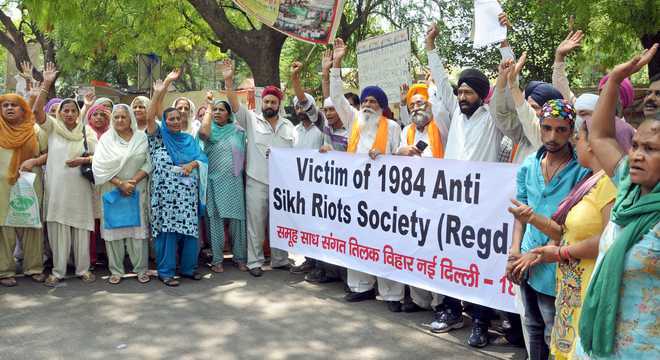New Delhi, December 12 : The 1984 anti-Sikh riots following the assassination of Prime Minister Indira Gandhi that claimed the lives of an estimated 8,000 people in Delhi and around the country were not spontaneous as has been made out but were government-orchestrated, says a scathing new book on the four days of mayhem, adding it’s time the world took note of the killings, as it did of the slaughter of a similar number of Bosnian Muslims in 1994.
“At the time, the authorities projected the violence as a spontaneous reaction to the tragic loss of a much-loved Prime Minister. But evidence points to a government-orchestrated genocidal massacre unleashed by politicians–with the trail leading up to the very heart of the dynastic Gandhi family–and covered up with the help of the police, judiciary and sections of the media,” author Pav Singh writes in ‘1984 – India’s Guilty Secret’.
The government of the day “worked hard on its version of events. Words such as ‘riot’ became the newspeak of an Orwellian cover-up, of a real 1984. To protect perpetrators, the most heinous crimes have been obscured from view; evidence destroyed, language distorted and alternative ‘facts’ introduced. The final body count is anybody’s guess,” the author says.
And yet, “what may well go down in history as one of the largest conspiracies of modern times is hardly known outside of India. At that time, Western governments toed the line of their Indian counterpart and downplayed events–arguably for fear of losing trade contracts worth billions–to the misnomer of ‘communal riots’”, the author says.
Pointing to a meeting held at the residence of then Information and Broadcasting Minister HKL Bhagat on the evening of October 31, hours after Gandhi was assassinated, and attended by an Additional Commissioner responsible for the capital’s Central, North and East districts, and the SHO of the Kalyanpuri police station, all of which bore the brunt of the violence, the author writes: “The foundation of their plan had, however, been laid well in advance and were in part the outcome of years of suspicion, misgivings and disagreements between the Centre and the state and its political, economic and social demands as framed by the Akali Dal, the governing Sikh-centric party in Punjab.”


You must be logged in to post a comment Login